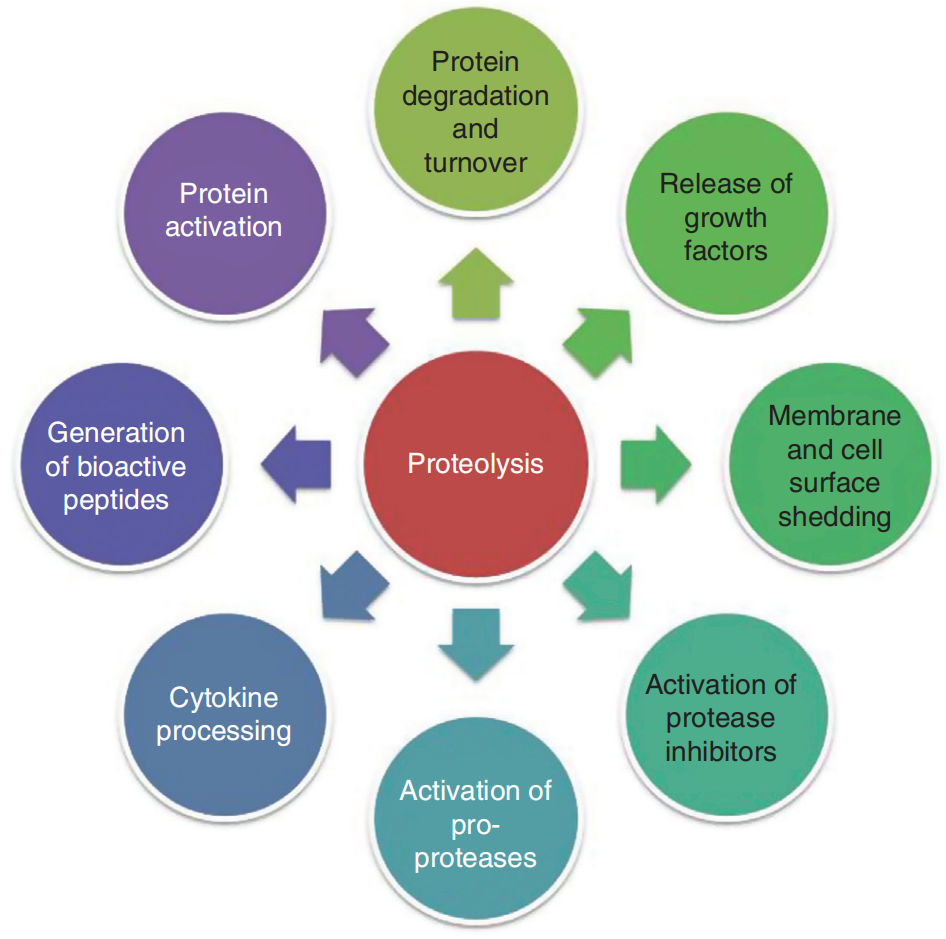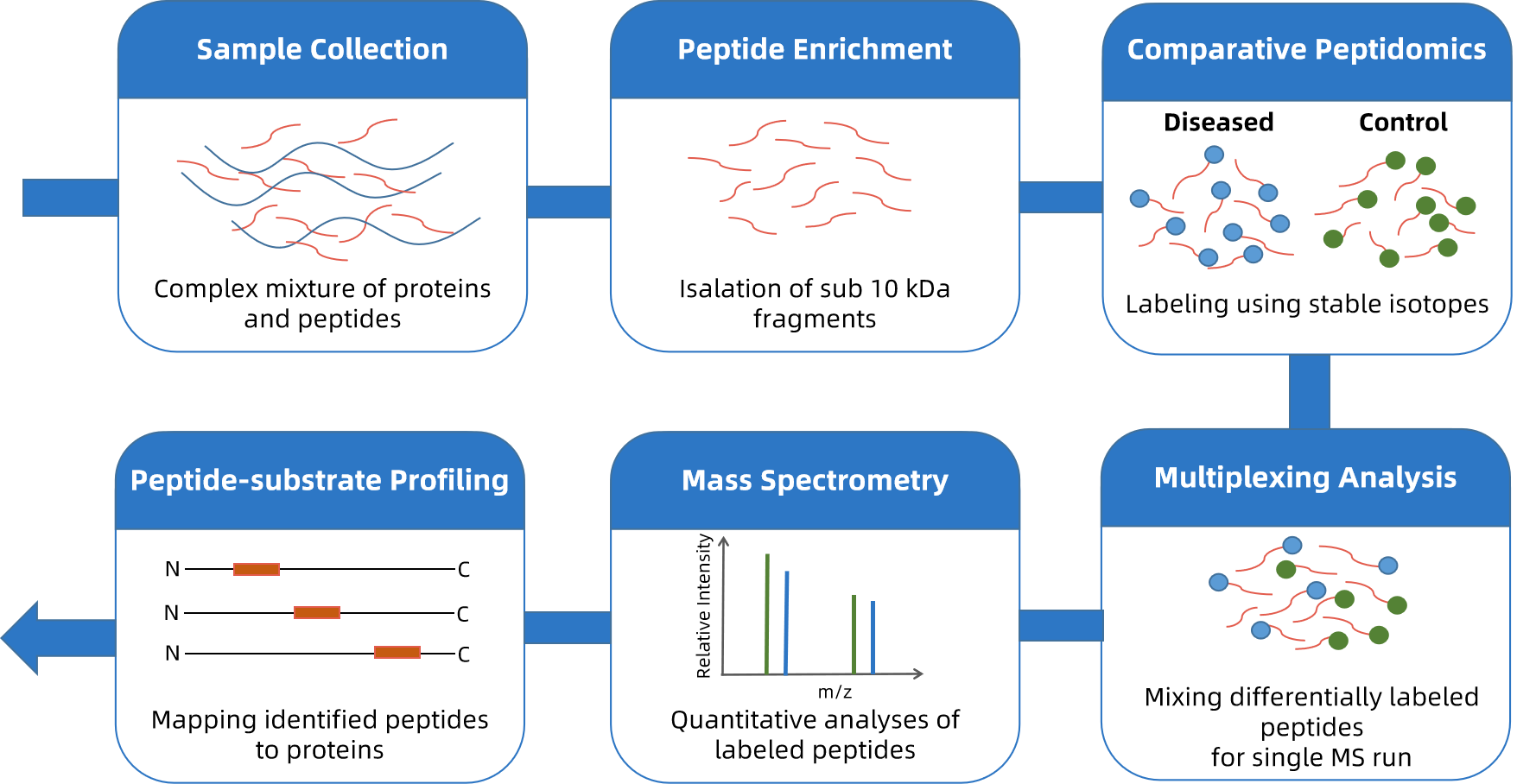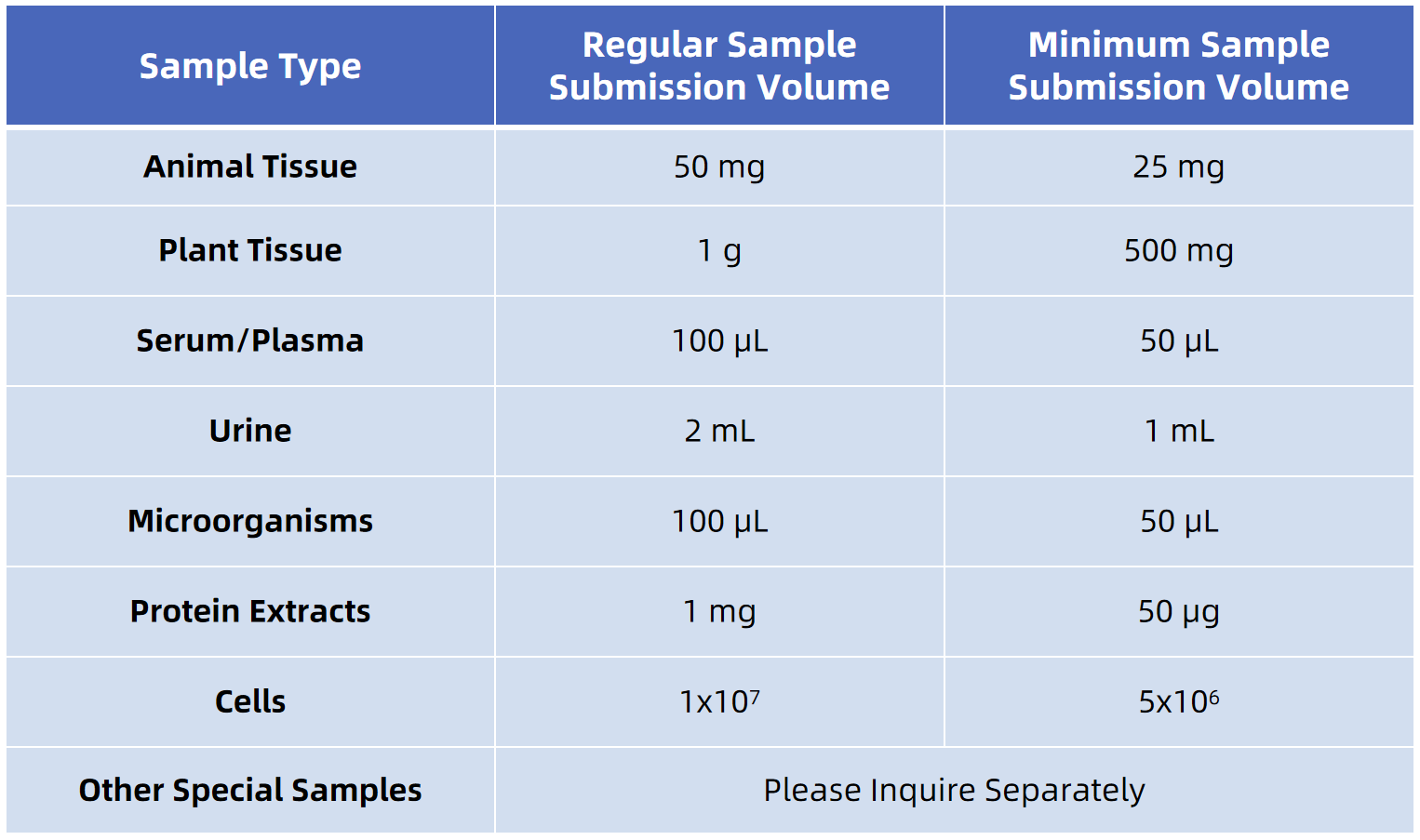Peptidomics-Based Proteolytic Pathways Research Service
Proteolysis plays a pivotal role in maintaining cellular homeostasis and regulating physiological functions. It is involved in various biological processes such as protein synthesis, modification, activation, degradation, and signal transduction. However, traditional proteomics methods often face challenges when it comes to fully analyzing the composition and function of proteolytic products, particularly in tracking dynamic proteolytic patterns. Peptidomics, an advanced high-throughput strategy for studying endogenous peptides, allows for precise capture of the spatial and temporal characteristics of proteolytic products, offering a unique perspective on proteolytic pathways.

Lai, Z. W. et al. Biol. Chem. 2015.
Figure 1. Overview of Proteolysis and Its Diverse Roles in Cell Physiology
The Peptidomics-Based Proteolytic Pathways Research Service focuses on systematically analyzing protein degradation patterns, the proteases involved, functional peptide fragments generated, and their biological roles under specific conditions. By utilizing high-resolution mass spectrometry and advanced sample processing methods, MtoZ Biolabs provides robust data support for basic research, disease mechanism studies, and the discovery of novel biomarkers.
Services at MtoZ Biolabs
Our Peptidomics-Based Proteolytic Pathways Research Service utilizes modern mass spectrometry techniques, particularly high-resolution systems such as the Orbitrap and Q Exactive HF mass spectrometers, along with liquid chromatography technologies like high-performance liquid chromatography (HPLC) and Nano-LC. Together with bioinformatics analysis, these technologies provide comprehensive peptidomics data. They efficiently separate, identify, and quantify peptides within complex samples, uncovering their role in protein degradation pathways.
In our study of protein degradation pathways, we leverage advanced computational tools to conduct in-depth data mining and analysis. This allows us to accurately identify potential proteolytic pathways and gain insights into the functional roles and mechanisms of peptides in specific biological pathways. Additionally, we offer services such as protease activity analysis, substrate identification, and pathway mapping to further explore and clarify the intricate networks involved in protein degradation.
Analysis Workflow
MtoZ Biolabs has developed a standardized, traceable peptidomics workflow, ensuring reproducibility and data reliability throughout the process:
1. Sample Collection
We collect samples from target systems containing complex protein and peptide mixtures. Sample types may include serum, tissues, urine, and cell lysates, preserving proteolytic products in their physiological state.
2. Peptide Enrichment
Using ultrafiltration, we isolate endogenous peptides with a molecular weight of less than 10 kDa, removing high-molecular-weight proteins to improve mass spectrometry sensitivity and accuracy.
3. Comparative Peptidomics
We apply stable isotope labeling (TMT, iTRAQ) to peptides from different treatment groups (disease vs. control) for quantitative comparison.
4. Multiplexing Analysis
Labeled peptides from different samples are mixed and analyzed in a single mass spectrometry run, enabling high-throughput comparative analysis.
5. Mass Spectrometry Detection
Using high-resolution mass spectrometry systems (Orbitrap or Q Exactive), we perform qualitative and quantitative analysis of peptides, capturing multidimensional signal characteristics like mass-to-charge ratio (m/z) and abundance.
6. Peptide-Substrate Profiling
We map the identified peptides back to their parent proteins, analyzing protease cleavage sites and constructing proteolytic pathways to understand enzyme-substrate recognition and regulatory mechanisms.

Why Choose MtoZ Biolabs?
✅ Advanced Analysis Platform: Our advanced systems, including Orbitrap Fusion Lumos and Q Exactive HF, paired with Nano-LC, provide high-sensitivity, broad peptide detection capabilities.
✅ Customizable Service Plans: We offer flexible labeling strategies (stable isotopes or reagents), enzyme cleavage strategies, and customizable analysis depths tailored to your research needs.
✅ Extensive Bioinformatics Support: We provide multi-dimensional pathway analysis, GO/KEGG annotations, substrate mapping, and cleavage site prediction, offering comprehensive structure-function relationship analysis.
✅ End-to-End Delivery Solutions: From sample collection to data delivery, we offer full-service management, ensuring research efficiency and data reliability.
✅ One-Time-Charge: Our pricing is transparent, no hidden fees or additional costs.
Sample Submission Suggestions

Note: Provide details on sample collection and handling. If you need further details, our technical support team is happy to assist and provide comprehensive guidance on sample submission.
Applications
The Peptidomics-Based Proteolytic Pathways Research Service is widely applicable to:
· Disease Research: Revealing protein degradation mechanisms in diseases like cancer, Alzheimer's, Parkinson's, and cardiovascular diseases.
· Drug Development: Assessing protease targets for drug screening and mechanism validation.
· Enzyme Engineering: Exploring protease structure-function relationships to optimize enzymes.
· Protein Degradation Mechanism Research: Analyzing key cleavage events in the ubiquitin-proteasome system and autophagy-related pathways.
MtoZ Biolabs' Peptidomics-Based Proteolytic Pathways Research Service provides cutting-edge analytical technology and professional support to help you achieve breakthroughs in protein degradation and related biological processes. Whether in disease mechanism research, drug development, or functional peptide studies, we offer customized, precise solutions. Contact us for more information and professional service support.
What Could be Included in the Report?
1. Comprehensive Experimental Details
2. Materials, Instruments, and Methods
3. Total Ion Chromatogram & Quality Control Assessment
4. Data Analysis, Preprocessing, and Estimation
5. Bioinformatics Analysis
6. Raw Data Files
Related Services
Peptidomics-Based Research Service
Peptidomics-Based Disease Mechanism Research Service
Peptidomics-Based Cosmetic Research Service
How to order?







